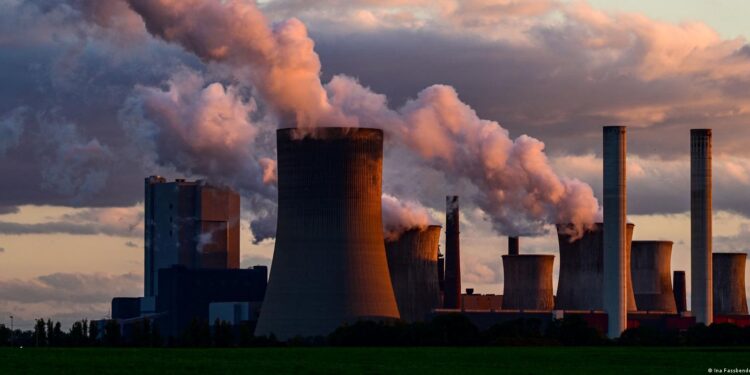The carbon market overhaul — one of the European Union’s main policy tools in the fight against global warming — will enable the bloc to do its part globally.
The European Union reached an agreement on Sunday to overhaul the bloc’s carbon market — its main policy tool in the fight against global warming.
“The agreement … will allow us to meet climate objectives within the main sectors of the economy while making sure the most vulnerable citizens and micro-enterprises are effectively supported in the climate transition,” said Czech environment minister Marian Jurecka.
The deal is yet to be formally adopted by the European Parliament and the European Council.
The agreement was struck after a 30-hour session. It claims the overhaul will help the bloc contribute towards the global efforts of combatting climate change and specifically cut carbon emissions by 55% by 2030 when compared to 1990’s levels.
The agreement comes days after EU’s trading partners criticized the policies and accused the bloc of protectionizm, saying it puts export industries at risk. Countries including the US and South Africa pointed out that the carbon border adjustment mechanism (CBAM) will unfairly penalize manufacturers. Critics of the policies also said that developing nations are likely to be most affected by this considering they lack the ability and infratsructure to update their climate ambitions quickly.
Sectors covered by the mechanism include cement, aluminium, fertilisers, electric energy production, hydrogen, iron and steel.
Revised carbon market
- Under the reformed market, some 10,000 factories and power plants will have to buy permits for emissions. The move is meant to encourage companies to adopt greener technologies to lower their carbon footprints.
- Free CO2 permits will be phased out by 2034.
- Overall target to cut emissions in the sectors covered by the European Emissions Trading System was raised to 62% by 2030. The cap of overall emissions will be reduced by 4.3% per year from 2024 to 2027 and 4.4% from 2028 to 2030.
- A separate new ETS II for fuel for road transport and buildings that will put a price on emissions from these sectors will be established by 2027. This move could be delayed till 2028 if energy prices across Europe remain exceptionally high.
- ETS will be extended to shipping.
- EU countries are required to measure, report, and verify emissions from municipal waste incineration installations from 2024. By January 31, 2026, the Commission will present a report with the aim of including such installations in the EU ETS from 2028.
Financing the transition
More money will be made available to innovative clean and green technologies, according to the statement.
Allowance of the Innovation Fund will increase to €575 million from the current €450 million. The Modernisation Fund will be increased by auctioning another 2.5% of allowances that will support EU countries with GDP per capita which is significantly lower than the bloc’s average.
All national revenue from auctioning ETS will be used towards climate-related activities, the statement said.
Additionally, a Social Climate Fund will be set up to support vulnerable houses, small businesses and transport users to cope with the price impact of the emissions trading.
Source: DW



Recent Comments